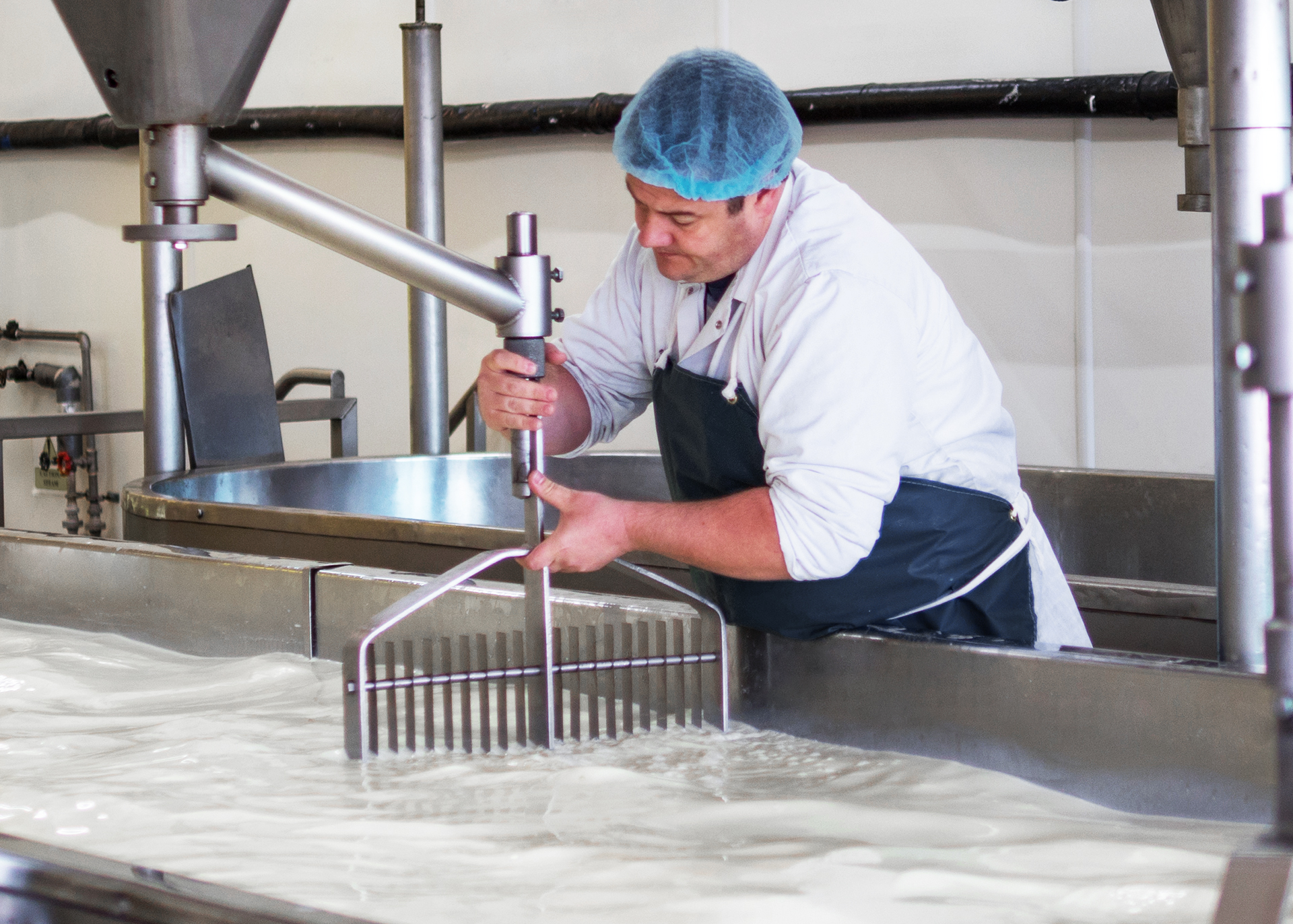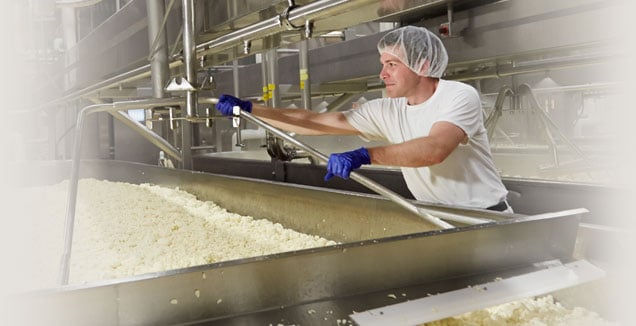Cheese Store Melbourne: Your Go-To Destination for All Points Cheese
Cheese Store Melbourne: Your Go-To Destination for All Points Cheese
Blog Article
A Comprehensive Appearance at Cheese Production: Active Ingredients, Approaches, and the Future of Artisan Cheeses
The complex process of cheese production is a fascinating convergence of art and science, where premium milk, rennet, and details bacterial societies serve as fundamental components. As the market significantly prioritizes sustainability and transparency, the future of artisan cheeses guarantees to mirror both heritage and progress.
Key Active Ingredients in Cheese Production
A variety of essential components play a crucial function in cheese manufacturing, each adding to the end product's flavor, structure, and personality. The key ingredient in cheese is milk, which can come from different resources, consisting of cows, goats, and lamb - cheese store melbourne. The kind of milk made use of considerably influences the cheese's taste and uniformity; as an example, cow's milk typically yields creamier cheeses, while goat's milk typically creates appetizing selections
Another crucial ingredient is rennet, an enzyme made use of to curdle the milk, dividing it into curds and whey. The source of rennet can be animal, veggie, or microbial, each giving unique qualities to the cheese.
Salt not only boosts the taste yet also serves as a preservative, hindering the development of unfavorable bacteria. In addition, numerous flavor agents, such as natural herbs, seasonings, or perhaps smoked wood, can be included in produce distinct artisanal cheeses. Together, these components form the structure of cheese manufacturing, setting the phase for diverse and rich cheese selections.
Standard Cheese-Making Techniques
Making use of conventional cheese-making strategies, craftsmens around the globe protect classic methods that have actually been passed down through generations. These strategies usually highlight making use of high-grade, locally sourced milk, which is central to the one-of-a-kind flavors and textures of artisanal cheeses. The process typically begins with the careful heating of milk, adhered to by the addition of societies and rennet to facilitate coagulation.
As soon as the curds form, they are reduced, permitting whey to drain pipes, an important action that influences moisture material and structure. The curds are after that delicately stirred and cooked to achieve the wanted suppleness. Later, they are drained pipes and pushed right into mold and mildews. Salting is a necessary facet of this procedure, enhancing flavor while also acting as a preservative.
Aging, or affinage, is an additional critical component, during which cheeses create their particular fragrances and tastes. Artisans might use details maturing settings, making use of humidity and temperature level controls to improve celebrity's profile. The commitment to these conventional approaches not just sustains regional economic situations yet likewise adds to the abundant variety of cheese ranges found around the check my reference world, commemorating social heritage and artisanal workmanship.
Modern Advancements in Cheese Manufacturing
How have technical innovations transformed cheese manufacturing in recent years? The assimilation of modern-day technology has actually changed both the efficiency and quality of cheese manufacturing. Automation in various phases of the process-- from curd development to product packaging-- has actually improved uniformity while lowering labor costs. Automated curd reducing and mixing systems enable for specific control over structure and wetness levels, critical elements influencing the last item.
In addition, developments in microbiology have actually enabled cheesemakers to choose details microbial societies and enzymes, optimizing taste accounts and improving life span. Using sensing unit innovation for keeping track of fermentation problems has actually also become common, enabling real-time modifications to preserve optimum environments for cheese aging.

These improvements not only enhance the quality and sustainability of cheese manufacturing but also encourage artisan manufacturers to maintain typical flavors while embracing modern-day effectiveness. As technology remains to advance, the future of cheese production looks appealing, mixing tradition with innovation.
The Duty of Terroir in Cheese
In the world of cheese manufacturing, terroir plays a pivotal duty in defining the unique qualities of numerous cheeses. Terroir, a French term typically connected with red wine, includes the ecological variables that affect farming products, consisting of soil structure, environment, and local vegetation and fauna. In cheese-making, the special attributes of the area where the milk is sourced can convey particular tastes and appearances to the end product.
For example, the grazing conditions of dairy products animals considerably impact the milk's composition, affected by the types of grasses and herbs readily available in a particular locale. This varies not just in between nations however also between regions within the same country. In addition, the microbial communities existing in the atmosphere contribute to the fermentation processes, bring about varied profiles in taste and aroma.
Cheeses such as Roquefort, Parmigiano-Reggiano, and Cheddar exemplify exactly how terroir can form their identifications, making them distinct and frequently protected by geographical indicators. As producers significantly identify the relevance of terroir, there is an expanding focus on sourcing regional active cheese factory melbourne ingredients and keeping standard practices, guaranteeing that each cheese genuinely shows its beginning.

Future Fads in Artisan Cheeses
A remarkable change is occurring in the craftsmen cheese industry, driven by advancing consumer preferences and technological advancements. Progressively, consumers are moving toward special, top notch products that emphasize both sustainability and regional sourcing - cheese store melbourne. This trend is triggering artisan cheesemakers to introduce, concentrating on small-batch manufacturing and using traditional methods while incorporating modern-day technology to improve top quality and safety
In addition, there is a growing interest in plant-based and alternate dairy products, pressing conventional cheesemakers to explore brand-new opportunities, such as cashew or almond-based cheeses. This change not just accommodates dietary constraints but also straightens with environmental issues regarding animal agriculture.
In addition, openness in sourcing and production processes is becoming critical. Consumers are much more educated and need traceability, triggering manufacturers great post to read to take on clearer labeling practices and engage in storytelling that highlights their techniques and worths.
Verdict
Finally, the elaborate process of cheese manufacturing combines standard strategies with modern-day developments, leading to a varied variety of tastes and textures. The emphasis on top notch active ingredients and the impact of terroir emphasize the virtuosity entailed in cheese manufacturing. As the industry evolves, a concentrate on sustainability and transparency will likely form the future of artisan cheeses, dealing with a progressively discerning customer base that values credibility and craftsmanship in dairy products.
Report this page